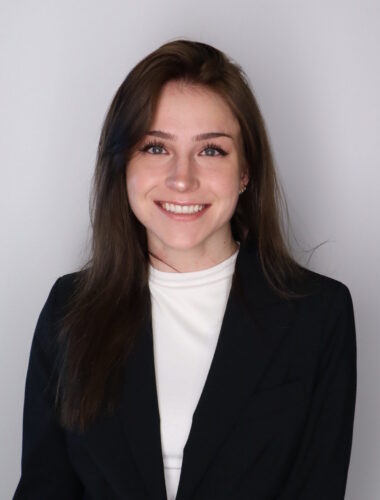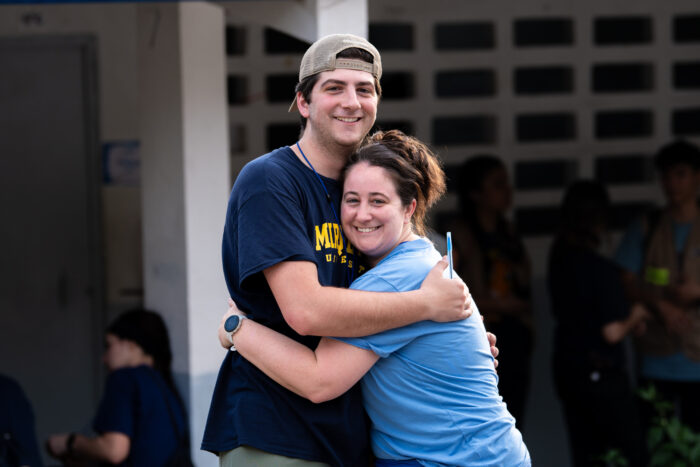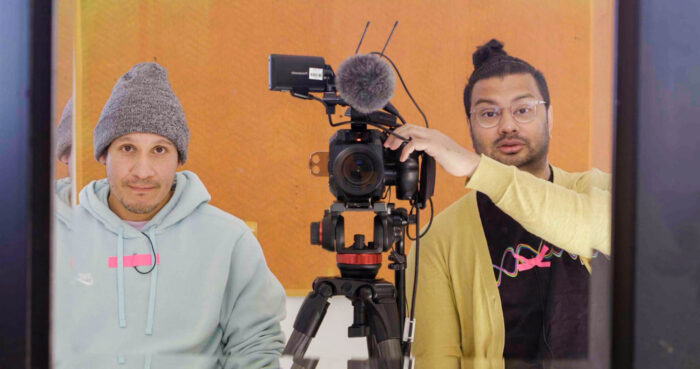To provide non-tenure-track faculty access to funds for research and scholarship, the Office of the Provost annually allocates $10,000 to be distributed to full-time participating faculty for research activities during the 2022-23 academic year. These funds are the result of the work of the Participating Faculty Task Force.
Six participating faculty research projects were funded this year:
Dr. Zori Paul, clinical assistant professor of counselor education and counseling psychology in the College of Education
Project title: “Queer People of Color and Microaffirmations”
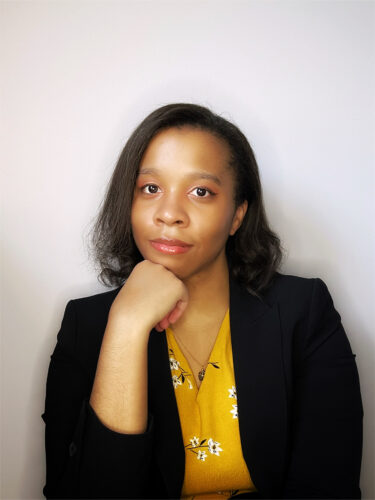
With the goal to further explore and expand upon literature on microaffirmations’ influence on mental well-being, specifically with sexually marginalized individuals of color, Paul will use the faculty research project funding to research the phenomena of microaffirmations with sexually marginalized people of color.
She hopes this study will be the foundation of a larger project to create a measure for microaffirmations that considers the intersection of sexual identity, gender identity and racial/ethnic identity, the lack of which is often a limitation of many quantitative measurement scales.
In addition, Paul aims for her findings to expand the knowledge and understanding of mental health professionals working with this population that has reported feeling the tension between their sexual and racial/ethnic identities.
“As a mental health professional, this research is important in furthering our understanding of affirming and social justice centered care for those that we work with,” she says. “We all come from different backgrounds and experiences and basing our knowledge as mental health professionals consistently on one specific group and not others can, intentionally or unintentionally, lead to harm.”
Seeking to give thanks to her participants, she will use the grant to give back to those who share their time and stories for her research.
“They are the experts in their own experiences and as a researcher, I believe one way to avoid exploiting those with marginalized identities is to compensate them for their time,” Paul says.
Megan Paonessa, teaching professor of English in the Klingler College of Arts and Sciences
Project title: “CloudSpire, a novel”
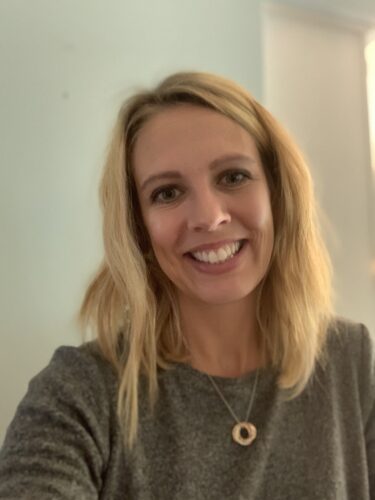
Seeking to advance the understanding of works that cross genre boundaries and incorporate new and underrepresented voices, with the faculty research project funding, Paonessa aims to finish her novel “CloudSpire.”
“My work creates a world in which humanity’s struggles lay open for interrogation. In a future destroyed by an alliance between artificial intelligence and the vast majority of humans who have come to worship them, four humans and a fallen, half-man, half-machine ‘angel’ must find their way to one another and bring the Earth back to life, both physically and intellectually,” Paonessa says.
She explains how “CloudSpire” leaves readers thinking about today’s future, saying, “Throughout their journey, readers find themselves pondering the implications of our world’s current trajectory: how our environment is changing and how these changes could be devastating, how governments use their power to segregate and control populations, how broadening our understanding of one another and our diverse ways of living opens the door to collaboration, mutual benefit and, perhaps, the hope of a peaceful and loving existence.”
To Paonessa, this funding means getting to work with an editor and feeling supported by Marquette.
“This grant allows me to get my work in front of an editor I admire, trust and respect. As a creative writer, I’ve learned the importance of being vulnerable before my readers, to accept their criticisms, and to learn from the insights I gain,” she says. “Without good readers, great books wouldn’t make it to market. Being a writer doesn’t have to be a solitary affair—it means the world to me that Marquette has my back.”
Dr. Zhao Wang, adjunct instructor, civil, construction and environmental engineering in the Opus College of Engineering
Project title: “A Novel Fire-Resistant Composite Material in Civil Infrastructures: A Study of the Thermal and Mechanical Properties of Natural Fiber Reinforced Nanocomposites (NFRNC)”
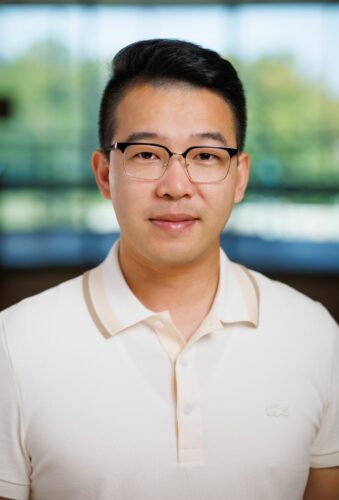
Natural fiber reinforced polymer (NFRP) shows great advantages over traditional synthetic fiber-reinforced polymer (FRP) in terms of eco-friendliness, recyclability and biodegradability.
“Natural fibers are typically derived from rapidly growing plants,” Wang says. “They will be much less expensive to use than conventional glass or carbon FRP. More importantly, their use causes little or no harm to the environment. They require less energy to process than synthetic fibers (e.g., glass fiber, carbon fiber) and emit less CO2. This new material helps to develop low-carbon constructions and promote infrastructure sustainability.”
However, the performance of NFRP material exposed to fire is a serious concern due its combustibility. Therefore, with the Participating Faculty Research Achievement Award, Wang aims to develop a new durable natural fiber reinforced nanocomposite (NFRNC) material for construction applications that would solve this problem.
Thanks to the grant, Wang says he will be able to continue researching the thermal and mechanical properties of novel natural fiber reinforced nanocomposites.
“When more results from this project have been generated, I will prepare proposals to look for external funding to continue this research,” he says. “Additionally, this project could help me establish a long-term research direction.”
Reagan Saxe and Jennifer Bjork, both clinical supervisors in general dental sciences
Project title: “Craniofacial Growth Prediction Using Machine Learning”
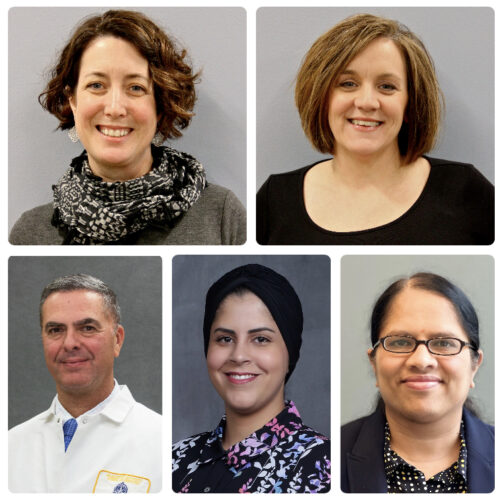
Seeking to develop a computer-based system that can use cephalometric radiographs to study and predict patterns in craniofacial growth, Saxe and Bjork have teamed up with an interdisciplinary team at Marquette composed of Manal Hamdan, DDS, MS, and Marinho Del Santo, DDS, Ph.D. principal investigators from the Marquette University School of Dentistry and Dr. Priya Deshpande from the Opus College of Engineering.
The team hopes to create a software system that can serve as an aid for dentists who are examining young patients’ cephalometric radiographs by helping them predict the future orthodontic/orthognathic treatment needs of their growing patients.
“What makes this research innovative is the use of artificial intelligence techniques to make a more precise prediction and to offer a resource that can help move this research beyond the realm of academia and into practical clinical use,” Bjork explains.
The faculty research project funding will enable the team to support undergraduate and graduate students from Deshpande’s lab in conducting a pilot study.
Dr. Giordana Poggioli-Kaftan, adjunct assistant professor of language, literatures and cultures in the Klingler College of Arts and Sciences
Project title: “Digital Archive for Mafia Literature”
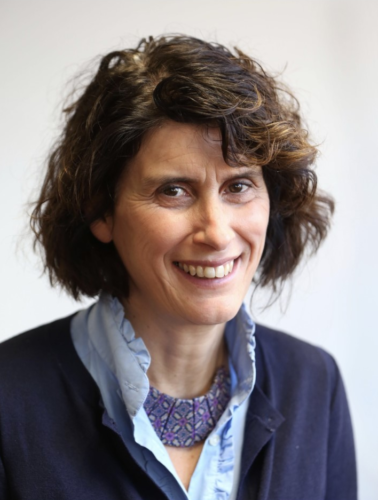
Because the United Nations Office on Drugs and Crime identifies organized crime as one of the world’s greatest economic, social and political threats, with the faculty research project funding Poggioli-Kaftan seeks to create an archive of United States academic literature on the Sicilian Mafia Cosa Nostra and civic society’s anti-mafia movements in Sicily.
“World mafias produce a remarkable amount of money—$2.1 trillion per year—through illegal trafficking and investments in the legal economy through the stock market and even by buying state bonds of countries with massive national debts,” Poggioli-Kaftan says. “The negative social, political and human implications are easy to see.”
Her goal is to create an archive that documents the history of the mafia and anti-mafia movements, the center can educate young generations about lawfulness culture and create awareness about global mafias’ political, economic and social threats by visiting schools and universities around the world.
The grant will allow her to continue with her project by hiring one graduate student, Tim Knaap, and three undergraduate students, Lilly Genecco, Cabria Zuehike and Anyiah Anthony.
“Creating moral and ethical actors is at the heart of the study of humanities at Marquette,” Poggioli-Kaftan says. “This project is one way for our students to answer one of the most serious of the world’s challenges today as moral and ethical actors. By creating this archive, students would collaborate in solidarity with anti-mafia movements in Italy and, arguably, in the world.”
Dr. Hyo Jung Jeong, ARRT postdoctoral fellow, Orthopaedic & Rehabilitation Engineering Center
Project title: “Reducing Ankle Complications in Children with Hypermobile Joints”

More than 10 million people in the U.S. are diagnosed with hypermobile Ehlers-Danlos syndrome (hEDS) or hypermobility spectrum disorder (HSD), the most common hereditary connective tissue disorder. Based off Jeong’s past work, 84% of children with hEDS/HSD experience ankle joint pain.
According to Jeong, “Despite the high prevalence of ankle pain in those with hEDS/HSD, contributing factors of ankle pain in children with hEDS/HSD are not well understood. This research will be the first to explore the ankle and midfoot biomechanical phenotypes and their relation to pain in children with hEDS/HSD.”
With this funding, she aims to understand the ankle and midfoot dynamics and identify factors associated with ankle pain in children with hEDS/HSD to help develop clinical interventions for managing the ankle pain.
“I am very pleased to receive this award since this research award will immediately support me in obtaining pilot data to submit a National Institutes of Health K-award application,” Jeong says. “My long-term goal is to improve clinical practice for pediatric patients with chronic conditions. Therefore, I hope this research award will help me launch a successful research career.”
